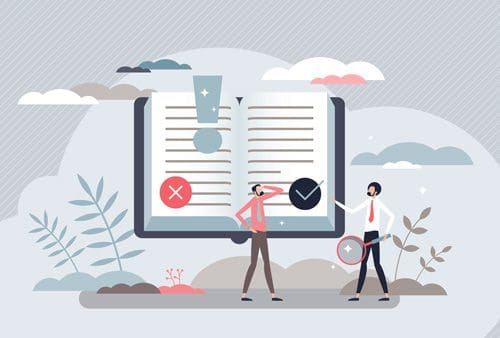 Being misinformed about addiction can prevent those struggling with a substance use disorder from getting the help they need. If you have never suffered from an addiction, it can be difficult to comprehend the work required to sustain a healthy recovery. Here, we debunk the common myths about addiction so you can gain a better understanding and help those closest to you who may be struggling with a substance use disorder.
Being misinformed about addiction can prevent those struggling with a substance use disorder from getting the help they need. If you have never suffered from an addiction, it can be difficult to comprehend the work required to sustain a healthy recovery. Here, we debunk the common myths about addiction so you can gain a better understanding and help those closest to you who may be struggling with a substance use disorder.
Debunking Myths About Addiction
Even with the progress we’ve made in understanding the science behind addiction, many people still suffer from misconceptions about the disease. Some common addiction myths include:
Addiction is a choice.
Addiction is not a choice. It is a disease and can affect anyone. No one chooses to have a substance use disorder, just like no one chooses to have an illness such as cancer. Many factors can cause a person to develop a substance use disorder, such as genetics, childhood trauma, or having a mental health disorder.
All you need is willpower to get sober.
Getting sober takes more than just willpower. It requires the support of those around you and, often, professional treatment. Only after the body has gone through detox and mental health disorders have been acknowledged and addressed can willpower take effect. When willpower is combined with healthy relationships, a healthy lifestyle, and recovery support, it can contribute to a long-lasting recovery.
You can tell when someone is addicted by appearance alone.
Many people who suffer from substance use disorders look just like everyone else. Not everyone who is addicted is homeless or poor. Anyone can suffer, no matter what their social or financial status may be. Someone suffering from a substance use disorder may be able to hide it for years.
If you can hold down a job, you are not addicted.
Many people who have a substance use disorder can maintain a job. A person may feel that as long as they can pay the bills and do their job, they must not have a problem. But addiction will eventually take a toll. If you cannot stop using substances on your own, it’s time to seek out professional help.
Treatment is too expensive.
Many recovery centers accept insurance and can provide insurance verification before you enter into treatment. Some offer financing options to make it possible to receive treatment even if you are currently uninsured. The Family and Medical Leave Act (FMLA) allows certain employees to take extended leave for addiction treatment without fear of losing their job and health benefits. Maintaining an addiction can be expensive. Legal, financial, and medical problems may pile up and cost, in the long run, much more than treatment itself.
Addiction can be cured.
There is no cure for addiction, but it can be managed successfully. Treatment programs can help those suffering from a substance use disorder get the help they need and lessen the possibility of relapse.
Relapse means failure.
Relapsing is not a personal failure. Addiction is a disease that requires much support and care. Returning to treatment after a relapse allows you to address your struggles, adjust your treatment plan, and take the necessary steps to move forward.
You can’t be addicted to prescription drugs.
This is not true. Abusing prescription drugs can be fatal, and many drug overdoses are from prescription medications. Certain prescription medications are addictive and just as dangerous as illegal drugs.
Rehab is a waste of time.
Some believe that rehab does not work or is a waste of time. But those who go through a treatment program are more likely to stay sober and not relapse as opposed to those who try to quit on their own. Going through a treatment program can help a person with a substance use disorder develop a new lifestyle and gain the necessary tools to live life without needing to use drugs or alcohol.
We Are Here to Help
If you or a loved one is struggling with a substance use disorder, help is available. At Twin Lakes Recovery Center in Monroe, GA, we offer treatment options for substance abuse, alcohol abuse, and co-occurring disorders. Our compassionate team of medical and therapeutic professionals will help you or your loved one on their path to recovery. Our programs include residential and detox programs, outpatient programs, relapse prevention programs, therapy sessions, and a family recovery program.



